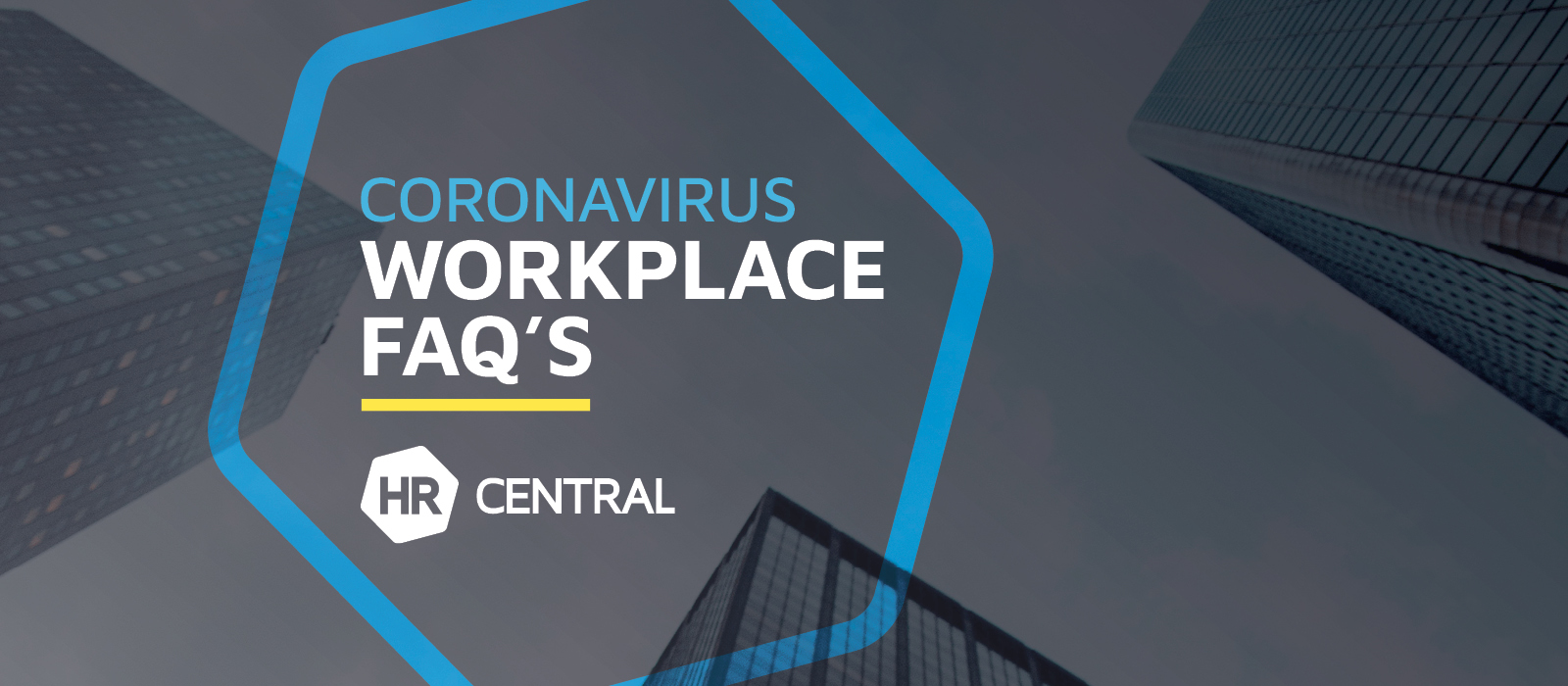UPDATED 16 March 2020
What if one of my employees needs to self isolate/quarantine?
What about casual employees?
What if my employees are anxious and nervous about catching the virus, or the future of their positions in your business?
If your business is doing it tough
Safeguarding your workplace against Coronavirus
What are the symptoms of Coronavirus?
The Coronavirus disease (COVID-19) has now been declared a global health emergency by the World Health Organisation, with over 100 confirmed cases in Australia. This has caused panic for many and that has invariably spread into the workforce. We have compiled some questions that may help you at the moment.
What if one of my employees needs to self isolate/quarantine?
Up to and including March 15, 2020, where an employer directed a full-time or part-time employee to stay home in line with the Australian Government’s health and quarantine advice, and the employee was not sick with coronavirus, the employee should have been paid ordinarily while the direction applied.
However, as of Monday 16 March, if an employee cannot work because they are subject to a government order requiring them to self-quarantine, the employee is not ordinarily entitled to be paid (unless they use leave entitlements). In this case, their inability to work is because of a government order (not advisory) and not because of their employer.
To be clear, if people are sick, or looking after someone who is sick, they should be on personal leave (which is paid if they have entitlements).
We are also receiving a lot of questions as to what to do in the event that they have either staff who are not busy or can’t sustain their current payroll obligations.
Generally speaking, your options may include:
- Directed leave (Long Service or Annual in cases of excessive accruals)
- Coming to an agreement with your team on them taking accrued annual leave
- Coming to an agreement with your team on them taking unpaid leave/working reduced hours
- Redundancies (genuine, conducted correctly)
What about casual employees?
Casual employees are not entitled to sick leave. Therefore if a casual employee has been diagnosed with Coronavirus, has returned from travelling to an at risk country, or has been exposed to someone with the virus, you are not required to offer any additional payment. However they should also adhere to the above self-isolation/quarantine should they be at risk or have the Coronavirus, and they too should only return to your workplace once they have obtained a medical certificate clearing them fit to return.
What if my employees are anxious and nervous about catching the virus, or the future of their positions in your business?
Coronavirus is mentioned in every news bulletin, in most conversations, and inevitably this can make people anxious. If your employees are fearful that you are not doing enough to ensure safeguarding the spread of the virus (see below) or that they are worried about the business and whether or not their jobs are at risk, you need to address this with respect and honesty. Demonstrate that you are taking this seriously, as the line between reasonable and unreasonable anxiety is subjective at any given moment, and have their best interests at heart. Maybe suggest that they work from home if that would make them more comfortable and it suits your business. If you are needing to cut back hours or wanting your staff to take some of their annual leave until the crisis dies down, have the conversation with them. Try to find the best possible outcomes for everyone and be open, frank and listen. This is an unusual event for most of us, and because it is a global health crisis it may for many be too overwhelming and heighten stress levels. We also recommend that you provide mental health support if required.
If your business is doing it tough
- Ask your employees if they would consider cutting back their working hours
- Ask your employees if they would like to take some of their annual leave or long service leave (if applicable)
- Cut back on casual staff
- Speak to your financial institution about support.
- Call HR Central and if we can’t help, we’ll know someone who can…
Safeguarding your workplace against Coronavirus
All employers should be taking precautions to manage their business’ and employees’ exposure to health and safety risks arising from the Coronavirus (COVID-19) outbreak.
What should I do in my workplace to help prevent the spread of Coronavirus
What should I do in my workplace to help prevent the spread of Coronavirus?
- Encourage all employees to wash their hands regularly, in particular if they have travelled on public transport or have been in contact with members of the public. It has been reported that handwashing regularly with soap and water can decrease the risk of spreading / catching COVID-19 significantly.
- Suggest that employees avoid hand shaking and physical contact with internal and external parties;
- Ensure you provide soap, tissues, hand sanitizer (particularly at the entrance of your business) and paper towels available for employees and guests to use;
- Ensure tea towels are laundered frequently;
- Encourage employees to sneeze or cough into their elbow or a tissue
- Ensure common areas are cleaned and disinfected frequently;
- Encourage employees to wipe down keyboards, telephone handsets, etc;
- Limit face to face external meetings and event attendance where possible.
- It is also highly recommended that companies stop or limit work related international travel. If international travel cannot be avoided, ensure that the employees are briefed by a qualified medical practitioner and check the travel advice from the Australian Government/Country Authority of where to they are travelling.
- Direct your employees to declare any upcoming travel.
- Limit face to face meetings – use Zoom or Skype (or other apps) where possible
- Cancel any trade shows and networking attendance
- Ask your team to not order anything online to be delivered to your workplace, if possible
- Let employees work from home if their work environments are safe
What are the symptoms of Coronavirus?
The main symptoms include (but are not limited to):
- Fever
- Flu-like symptoms such as coughing, sore throat and fatigue
- Shortness of breath
However, it is important to be aware that some people may have the virus but display no symptoms.
What if one of my employees has cold and flu symptoms?
• Ensure that your employee does not attend the workplace. Your employee should be directed to seek medical advice immediately.
• Any employee who takes time off on sick leave should obtain a medical certificate clearing them to return to work.
What if one of my employees has recently returned from overseas, or has been in contact with someone who has Coronavirus?
At this stage the outbreak of the Coronavirus is most prevalent in the following countries:
· Mainland China
· Iran
· Italy
· Republic of Korea (South Korea)
· Cambodia
· Hong Kong
· Indonesia
· Japan
· Singapore
· Thailand
If an employee has returned to Australia from any of these countries, or has been in contact with someone who has the virus, they should not return to work until they have sought a medical certificate clearing them to return to work. This may mean that they will need to self isolate / quarantine for a period of time.
This information is advisory in nature and subject to change at any time. We will keep updating information regarding you and your employees when necessary. HR Central appreciates how stressful it can be for many business owners and operators, and if you are anxious, or want to move people on or cut down labour hours, call us first. We will ensure you do it the right way. 1300 717 721


